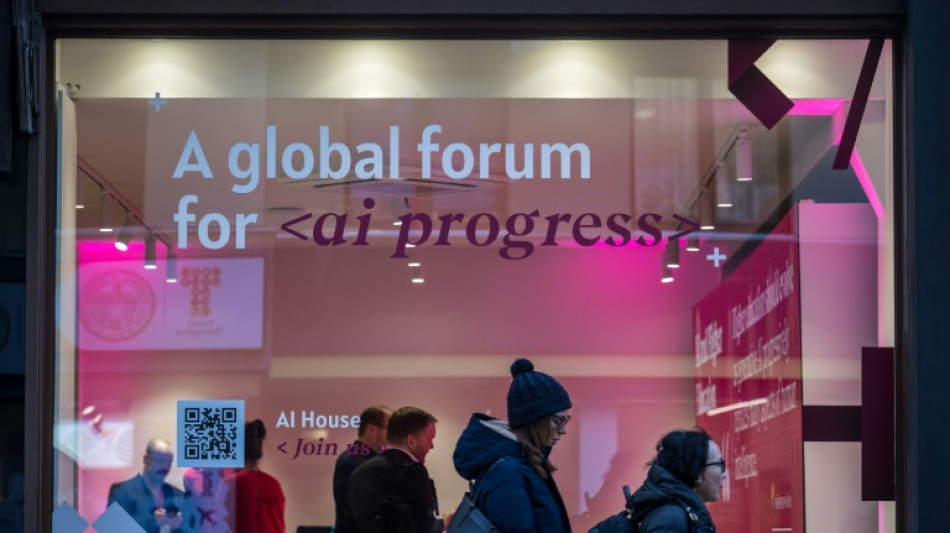
-
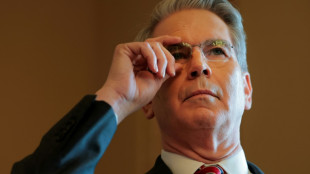 Markets boosted as Trump softens tariff pain for auto firms
Markets boosted as Trump softens tariff pain for auto firms
-
Suryavanshi, 14, dubbed 'next superstar' after batting records tumble

-
 Australian doubles player Purcell accepts 18-month doping ban
Australian doubles player Purcell accepts 18-month doping ban
-
Kashmir attack unites political foes in India, Pakistan
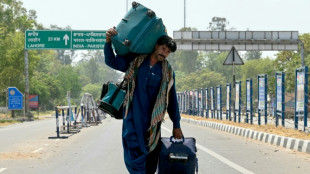
-
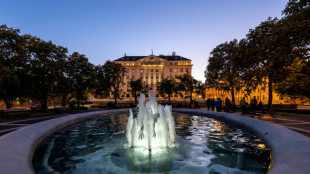 Croatia hotel toasts dizzying century of stars, sovereigns and champagne
Croatia hotel toasts dizzying century of stars, sovereigns and champagne
-
Kenya's desperate need for more snake antivenom

-
 Les Kiss in frame with Wallabies set to name new coach
Les Kiss in frame with Wallabies set to name new coach
-
Cavaliers scorch Heat, Warriors down Rockets in thriller

-
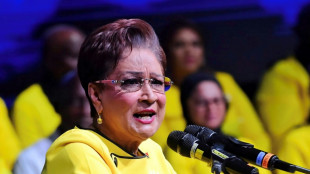 Opposition wins Trinidad and Tobago election, returning Persad-Bissessar as PM
Opposition wins Trinidad and Tobago election, returning Persad-Bissessar as PM
-
Study sheds light on origin of Australia's odd echidna

-
 France tries Syrian Islamist rebel ex-spokesman on war crime charges
France tries Syrian Islamist rebel ex-spokesman on war crime charges
-
Trump boasts of 'fun' 100 days, but Americans disenchanted

-
 Elitist no more, caviar is turning casual
Elitist no more, caviar is turning casual
-
Amnesty accuses Israel of 'live-streamed genocide' against Gaza Palestinians

-
 Inter slump puts season at risk ahead of daunting Barca trip
Inter slump puts season at risk ahead of daunting Barca trip
-
Power returns to most of Spain, Portugal after massive blackout

-
 'I have hope': Vietnam Babylift survivor's search for birth mother
'I have hope': Vietnam Babylift survivor's search for birth mother
-
US climate assessment thrown into doubt as Trump dismisses authors

-
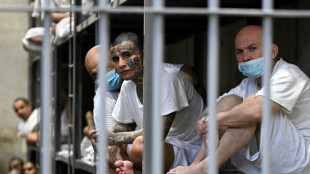 Venezuelan president slams US over little girl's 'abduction'
Venezuelan president slams US over little girl's 'abduction'
-
Hard-right upstarts eye big gains in local UK polls

-
 Skulls, smoke and spirits: Thai ceremony for the unclaimed dead
Skulls, smoke and spirits: Thai ceremony for the unclaimed dead
-
Canada's Carney: political newcomer who says he's best in a crisis

-
 Cavaliers scorch Heat to seal series sweep
Cavaliers scorch Heat to seal series sweep
-
Dead salmon create election stink on Australian island
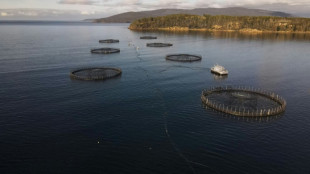
-
 Mic check: Singapore's podcast boom amplifies opposition voices
Mic check: Singapore's podcast boom amplifies opposition voices
-
Markets rise as traders gear up for earnings, key jobs data
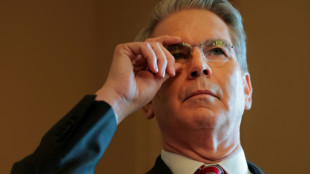
-
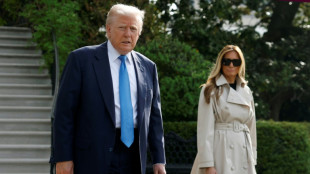 Congress passes 'revenge porn' ban, sending it to Trump
Congress passes 'revenge porn' ban, sending it to Trump
-
Spain and Portugal work to restore power after massive blackout

-
 Less-thirsty rice offers hope in drought-stricken Chile
Less-thirsty rice offers hope in drought-stricken Chile
-
Yamal stardust could give Barca edge on Inter Milan

-
 Coca-Cola Europacific Partners plc Announces Q1 Trading Update & Interim Dividend Declaration
Coca-Cola Europacific Partners plc Announces Q1 Trading Update & Interim Dividend Declaration
-
Trump targets US 'sanctuary cities' in migrant crackdown
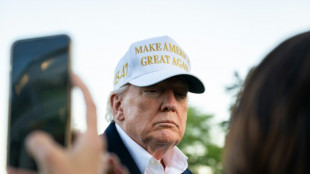
-
 Mexico agrees to send water to US after Trump threatens tariffs
Mexico agrees to send water to US after Trump threatens tariffs
-
Amazon launches first Starlink-rival internet satellites

-
 US lost seven multi-million-dollar drones in Yemen area since March
US lost seven multi-million-dollar drones in Yemen area since March
-
Bucks blow as Lillard suffers torn Achilles: team

-
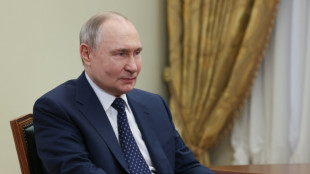 Putin orders three-day truce amid new US warnings
Putin orders three-day truce amid new US warnings
-
Real Madrid's Ancelotti agrees Brazil deal - reports

-
 ChatGPT adds shopping help, intensifying Google rivalry
ChatGPT adds shopping help, intensifying Google rivalry
-
Global stocks mixed amid trade hopes as markets await tech earnings

-
 Commanders heading back to D.C. after inking $3.7 bln stadium deal
Commanders heading back to D.C. after inking $3.7 bln stadium deal
-
US warplane falls off aircraft carrier into Red Sea

-
 Feisty Arteta urges Arsenal fans to 'bring boots' to PSG Champions League clash
Feisty Arteta urges Arsenal fans to 'bring boots' to PSG Champions League clash
-
Bucks blow as Lillard suffers ruptured Achilles: reports

-
 No power, no phone, no transport -- Spain in a panic
No power, no phone, no transport -- Spain in a panic
-
US warplane went overboard into Red Sea: Navy

-
 'Like a dream' as IPL's 14-year-old Suryavanshi becomes youngest to hit T20 ton
'Like a dream' as IPL's 14-year-old Suryavanshi becomes youngest to hit T20 ton
-
Luis Enrique says PSG have improved since October Arsenal loss

-
 UN food, refugee agencies warn of huge cuts after funding losses
UN food, refugee agencies warn of huge cuts after funding losses
-
Trump trade war dominates BRICS meeting in Brazil


In Davos, AI excitement persists but fears over managing risks
Walking around in Davos where the global elites gathered for the World Economic Forum this week, there were two inescapable words on the windows: artificial intelligence.
If 2023 was the year everyone including investors and politicians were feverishly excited about AI, 2024 looks set to be a more sober year where people try to tackle how the world benefits from AI while mitigating its risks.
AI was the buzzword on everyone's lips at the World Economic Forum, when they weren't talking about a possible return of former US president Donald Trump.
The world's biggest tech companies including Google, Meta and Microsoft were out in force, with their most senior executives in town for panels but also unofficial chats with businesses and politicians from around the world.
The hype over AI reached fever pitch last year after ChatGPT burst onto the scene in late 2022, demonstrating the rapid developments of the technology.
The chatbot could pour out expressive poems and essays in seconds, and even pass medical and legal exams.
ChatGPT also focused minds on AI regulation to protect individuals from its dangers and harness innovation, with politicians in China, the European Union and the United States passing or working on legislation last year.
UN Secretary General Antonio Guterres said on Wednesday climate and AI had been "exhaustively discussed" by governments, media and leaders at Davos.
"And yet, we have not yet an effective global strategy to deal with either," he said.
China's Premier Li Qiang called for global cooperation on the issue while Guterres told reporters that President Xi Jinping told him he wanted the UN to be at the centre of efforts on AI governance.
Guterres last year set up a panel on AI that delivered a draft report in December, with recommendations on five guiding principles for AI including inclusivity.
- Microsoft president 'optimist' -
The cautious tone had already been set before Davos began on Monday after the International Monetary Fund (IMF) published a report with sobering statistics.
The IMF said AI would affect nearly 40 percent of jobs around the world, and some 60 percent in the advanced world -- replacing some jobs while complementing others.
With people attending from all over the world including China, India, Saudi Arabia, South Africa, there was also focus on what AI will mean for the Global South.
The UN's panel of experts includes Marietje Schaake, international policy director at Stanford University Cyber Policy Center.
The UN has a "unique role with its global legitimacy", she said, "to correct the wrong, if you want to think about it that way, of not having included people, their contexts, their lived experiences, their needs from the global south".
Microsoft President Brad Smith told AFP he was already an "optimist" before Davos about the world working together better on AI. "Nothing has changed," he said.
"What Davos enables is lots of conversations with people who are not always in the same room, and you take stock of where things are, you find out where people have values in common, and you find where you have challenges that you need to address," he said Wednesday.
Sapthagiri Chapalapalli, head of Tata Consultancy Services Europe, said the "overwhelming majority" of people he spoke to at Davos "feel that (AI) has immense potential".
He described how he fielded different questions from participants including how to use AI to improve productivity.
Another question that came up, Chapalapalli said, was: "'How do we do AI in a more responsible manner?'"
The EU believes its comprehensive law to regulate AI is one of the answers to managing the technology's risks.
- Disinformation fears -
There is already a big test for regulators and companies as billions worldwide prepare to vote in polls in Europe, India, Mexico and the United States.
At Davos, the dangers posed by AI for those elections were on the agenda.
Senior EU official Vera Jourova said she pressed big tech executives on what they were doing to prepare for the elections.
Jourova also said Brussels' efforts on its "AI Act" were welcomed.
"What I hear very often from American companies is that the European way of regulating things ahead mitigates risks ex ante, that it creates a bigger legal certainty than in the United States," she told journalists.
ChatGPT creator OpenAI's CEO, Sam Altman, acknowledged the concerns over AI's impact on elections this year but insisted his company was "focused" on the issue.
P.Silva--AMWN
